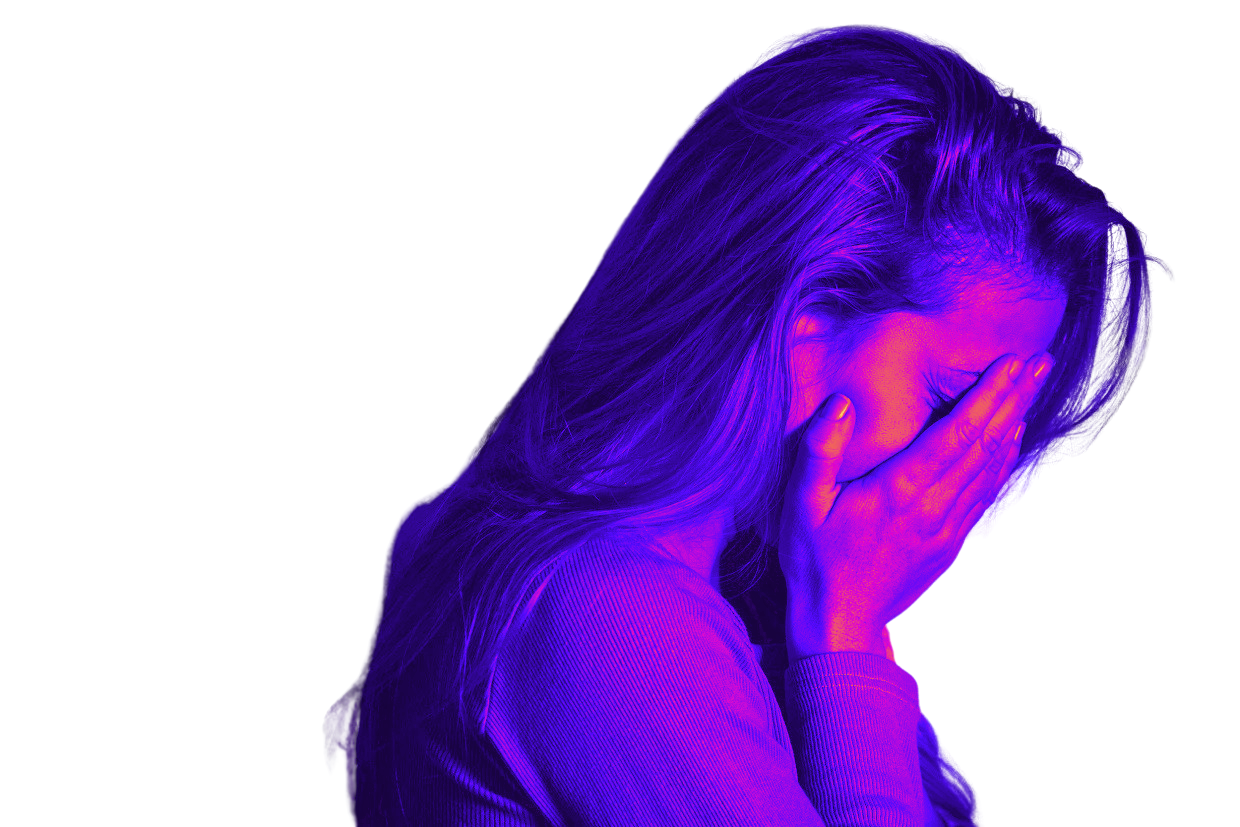
Living with a mental health condition can often have an effect on day-to-day life, making things that others might not think about much more challenging for the person living with the condition. There isn't just one way to describe mental health. We might use it to talk about how we feel, how well we're coping with daily life or how we behave. Mental health is often time interchanged with not having mental health illness(es). Focusing on your mental health does not guarantee happiness or fulfillment. However, a lack of focus in this area can cause everyday life situations to become more difficult to deal with.
What do we mean when we talk about mental health? Mental health includes being able to think, act, and feel well. It all comes down to what people think, feel, and do.
3 Common Types of Mental Health Problems
1. STRESS
Stress is how we act when we feel threatened or under tremendous pressure. Most of the time, it happens when we feel like we cannot handle or control a situation.
When we are stressed, it can be caused by many of the following:
- The need to be successful (ex. work or academics)
- Body appearance
- Facing big changes in your life (ex. divorce)
- Juggling priorities
- Financial obligations
- Overwhelming responsibilities
- Abusive situations (physical and emotional)
- Feelings of helplessness in the outcome of a situation
- Feeling under pressure by your workload
- Not getting enough rest (ex. insomnia)
- Experiencing discrimination
Click here to take a STRESS TEST
ll
l
HERE ARE A FEW STRESS-RELIEVING TIPS
- Meditation
- Listen to music (ex. Jazz)
- Exercise (TAKE OUR CHALLENGE)
- Write the problem down (focus on only what you can control)
- Take time for your self
- Take naps
- Identify your triggers
l
l
2. LONELINESS

We all have times when we feel alone. Loneliness is a feeling that is unique to each person, so everyone's experience of it will be different. People often say that loneliness is the way we feel when our need for satisfying social contact and relationships is not met. However, being alone does not always mean you are lonely.
You may also have a lot of friends, be in a relationship, or be part of a family and still feel lonely, especially if you don't feel understood or cared for by the people around you. There are many different reasons why people feel lonely, and each circumstance from person to person.
Many factors can contribute to why a person may be lonely:
· having a death in the family (also known as bereavement)
· ending a relationship
· abandonment and/or rejection
· Low self-esteem
· Personality factors (ex. shyness or introversion)
Click here to take a LONELINESS QUIZ
l
l
3. ANXIETY

ANXIETY is what we experience when we are anxious, tense, or fearful, especially about things that we believe may occur in the future.
Anxiety is a normal human response to the perception of danger. It can be felt through our ideas, emotions and bodily sensations. Everyone worries about things from time to time, but if you have anxiety, your worries affect your daily life in a way that makes you unable to function.
The World Health Organization (WHO) says that 1 in 13 people around the world has an anxiety disorder. This makes anxiety disorders the most common mental health problem in the world. So, if you have one, know that you are not the only one. Women and young children are known to be more likely to have anxiety than men. Women tend to experience more anxiety due to more complex social roles, hormonal differences (ex. estrogen/progesterone) and stressful life events like pregnancy.
What causes anxiety?
An anxiety disorder is not caused by or brought on by just one thing, instead by a combination of things. Some examples include: genetics, childhood experiences, diet and/or mental illness. There are several other scenarios that can also play a role, such as personality disorders, physical health and drug/alcohol abuse.
· Family history of mental health conditions. Anxiety disorders can sometimes run in families and many times people who experience signs of anxiety may have a hereditary propensity for them. However, having a parent or other close family suffer from anxiety or any mental health illness does not guarantee that you will too.
· Personality factors. According to research, several personality traits are associated with a higher risk of anxiety. For instance, anxiety can occasionally arise in children, adolescents, or adults who are perfectionists, easily agitated, shy, inhibited, lacking in self-esteem, or want to control everything.
· Physical health problems. Chronic physical sickness may potentially contribute to anxiety problems or have an impact on the management of either anxiety or physical illness. Chronic illnesses commonly connected with anxiety disorders include:
- Diabetes
- Asthma
- Hypertension and Heart Disease
Click here to take an ANXIETY TEST
L
L
Call 713-723-8300 FOR HELP